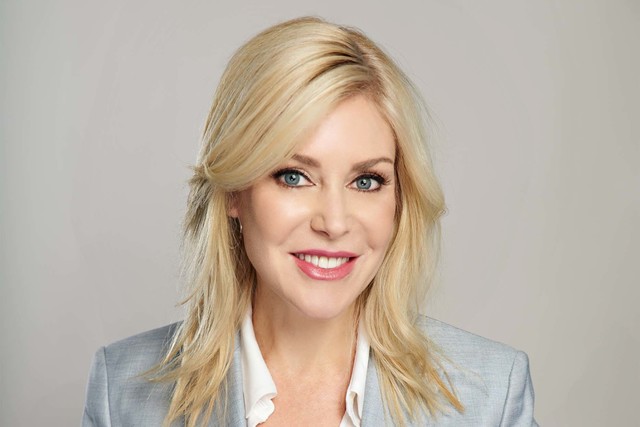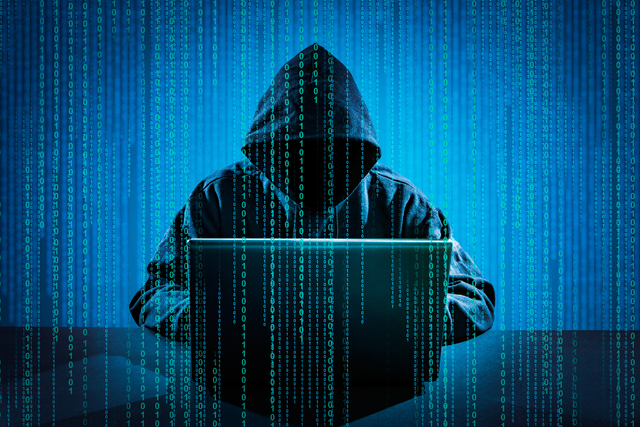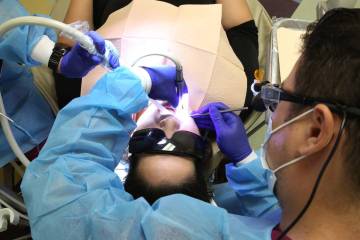To survive the hacking of a power grid, it’s time to stockpile food, water and medicine
Heather Murren, the wife of Jim Murren, chairman and CEO of MGM Resorts International, doesn’t fit the stereotypical image of a survivalist or prepper.
Her hair and makeup are just so. Instead of fatigues, she prefers designer wear. She lives in a mansion, not a cave or a shack in the forest.
But when she talks about what she learned as a member of the Commission on Enhancing National Cyberesecurity, what she has to say often sounds much like something we’ve generally thought of as coming from the lips of a backwoods, paranoid, tobacco chewin’, gun totin’, doomsday conspiracy theorist.
It’s time, she says, for Americans to stockpile food, water, medical supplies and other essential everyday items. She says she’s talked to representatives with the American Red Cross and urged them to get the word out to people.
The reason is simple: The nation’s electric power grid is susceptible to cyberwarfare.
Should hackers shut down much of the electrical grid and the critical infrastructure accompanying it, we would have to live for an extended period of time without much of what we now take for granted.
Murren notes experts believe Russia hacked Ukraine’s power grid twice in the past year.
Forget having heat or air conditioning. Water couldn’t be pumped into most homes. ATMs, debit and credit cards wouldn’t work. There would be no banking or air traffic control or traffic lights or Internet. Pharmacies couldn’t dispense medicine. Gas stations couldn’t pump. Say adios to commerce for days or weeks or even months.
“Hacking of the power grid is a significant concern,” said Murren, appointed last year by President Obama to the commission that recently released its report to the nation.
“We can recover from a natural disaster faster than a cyberattack,” she said. “When Hurricane Sandy hit we could bring people from throughout the country to help out. But if there’s a cyberattack on the grid in that same region we couldn’t send people from other places because they all use other computer systems. They won’t know the system, what to do.”
What makes Murren’s comments all the more compelling is that they are delivered in the crisp, authoritative, unemotional tone of a Wall Street financier, which she was before moving to Las Vegas.
“Americans should be very concerned,” she stressed.
More people seem to be with each passing day. You can even find directions on the Internet about how to make the water in a swimming pool safe for drinking in an emergency.
While what commission members have to say is in the spotlight today because Russian hacking to influence the presidential election has dominated the news, the observations made on cybersecurity four years ago by then-U.S. Defense Secretary Leon Panetta are no less riveting.
“We know foreign cyberactors … are targeting the computer control systems that operate chemical, electricity and water plants … We know of specific instances where intruders have successfully gained access to these control systems. We also know they are seeking to create advanced tools to attack these systems and cause panic, destruction and even loss of life.”
Murren said more urgency is needed toward cybersecurity, both in government and private industry.
“Technology tends to be viewed by business management as a silo,” she said. “But cyber now touches everything. New board guidelines suggest that at least one board member should have cybersecurity knowledge and that the full board should receive a presentation annually on the subject of cybersecurity. Most businesses don’t do this.”
On the other hand, she said government has too often made businesses go it alone and not played a critical role in coordinating a well-thought-out national digital security system.
She said an appropriate response by the American government to foreign-sanctioned cyberware must be worked out.
“When does it constitute an act of war?” she said.
Murren said the country can’t wait any longer to enact a workable security system.
“Failures in cybersecurity leading to theft of intellectual property are extraordinarily costly … Left unchecked, it can cost us our economic strength and global leadership. Some estimates put the theft of intellectual property — airplane schematics, drug formulas, etc., at $300-$350 billion per year.”
Paul Harasim’s column runs Sunday, Tuesday and Friday in the Nevada section and Monday in the Health section. Contact him at pharasim@reviewjournal.com or 702-387-5273. Follow @paulharasim on Twitter























